US-based US Agriseeds has put up a rice breeding station in the Philippines in line with government’s call to become rice-sufficient even as it releases to the market a variety that enables farmers to plant hybrid rice during disease-infested rainy season.
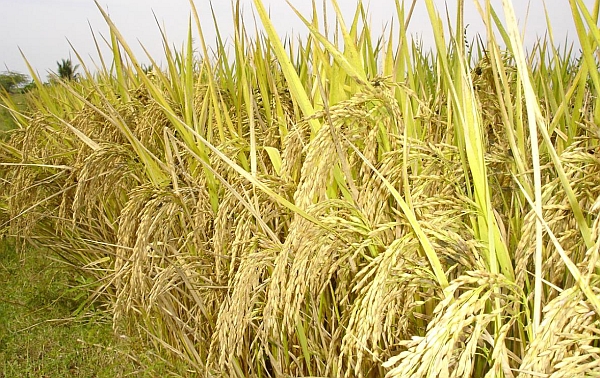
The breeding station of US Agriseeds through local subsidiary SeedWorks Philippines Inc. (SPI) covers four to five hectares in Munoz, Nueva Ecija. A breeding station is where the parent lines are developed for the desired superior traits like disease resistance.
The company sees brisk demand growth not only in the Philippines that has a yearly two percent population growth but in bigger rice-consuming South East Asian countries, particularly Indonesia.
“We’re fairly new in Southeast Asia, but we see a big opportunity because rice is mainly produced in Asia, and it is a good market if you put together Philippines, Indonesia, and Vietnam,” said Carlos Miguel L. Saplala, US AGriseeds general manager-South East Asia.
Indonesia is among the world’s largest rice importers with around 1.5 million metric tons (MT) of import yearly, while the Philippines is still a rice importer at 187,000 MT this year.
It is bent at sustaining investments in the Philippines.
“Our investment here has been continuous since the end of 2006 toward 2007. We’re continuing to pour investment because you don’t really recover investments in seeds over a short period of time. From the time you start breeding for a new hybrid today to the time that the hybrid will see the market, it takes at least six years,” he said.
US Agriseeds is specifically looking at the wet season as a market for a variety developed to be tolerant to bacterial leaf blight (BLB), an infestation problem that perennially causes farmers to abstain from hybrid rice use during the wet season. This is the Tatag Hybrid or TH 82.
“TH 82 is very tolerant to bacterial leaf blight. It has been proven that it could perform in the wet season,” he said. “In Davao, we’re getting 11 tons per hectare even in the wet season. I think this is why we’ve progressed fast because TH 82 can be grown in the wet season. Farmers can plant it year round in many provinces.”
The company is further working on a variety that has more intensified trait against the disease.
Dr. Jagadeesha Gouda, Seedworks- India senior plant breeder, said a BLB resistant variety is being developed by Seedworks in its facility at the International Crops Research Institute for the Semi Arid Tropics or ICRISAT based in Hyderabad, India.
It is not only sturdy against lodging, but it can also withstand stresses such as lack of irrigation and is suitable in areas where there are interruptions in irrigation, SPI said.
Farmers in rainfed areas have become interested in TH 82 even if hybrid rice is least recommended in rainfed areas.
“Based on our experience, we have sold to rainfed areas in some parts of Panay, Pangasinan, and Bicol. Water in rainfed is not as sufficient as those in irrigated areas that get water through NIA. But we’re getting an increment of two tons (per hectare) in areas where yield is only three to four tons,” he said.
Rainfed areas are a potentially vast market with records showing some three million hectares all over the country.
SPI conducts technology demonstration in multi-locations right in farmers’ areas through the Farmer Reliability Test (FRT). It has more than 40 FRT areas nationwide.
Its other hybrid rice variety, US 88, has been developed specifically for the Philippines. It is a long grain type of rice suited to Filipinos’ preferred cooking quality and taste.
“The US 88 is only sold in the Philippines. It’s one of the good varieties for eating quality with intermediate amylose. The texture is like IR 64, the premium inbred check variety for grain quality,” he said.
It has shiny, crystal-like grain, and the texture and grain length is similar to dinorado which is a known retail name, but it’s even better because of its long grain, said SPI.
“Its specific target market is progressive farmers, and farmers that are already getting a good yield can get even higher yield.. It is covered by the (loan facility) of the Sikat Saka program,” he said.
Target areas are Isabela, Nueva Ecija, Davao del Sur.
Within a year or two, it is set to release a third hybrid rice variety that just obtained accreditation with the National Seed Industry Council.
“We want to please farmers, but we also make traders and millers happy by offering hybrids that have good milling attributes. The strength of this hybrid is also early maturity, so farmers in Iloilo can plant three croppings a year,” he said.
US Agriseeds’ other breeding station for rice is in Hyderabad, India. Its germplasm base comes from a combination of sources—own collection all over the world, from the Hybrid Rice Development Consortium-International Rice Research Institute and line further developed into new parental lines.
It has a biotechnology facility in Singapore. The company also has satellite farms with close to a hectare area for trials of hybrid rice in Isabela, Los Banos, and Davao.
Seedworks also sees a good prospects for its hybrid vegetables as health-conscious consumers are a growing market. It has chili or pepper, tomato, kalabasa, watermelon, eggplant, and sweet corn.
It is breeding vegetables according to consumer preference such as white for cucumber in Nueva Ecija and light green in Mindanao.
“It’s not just about high yield but you have to convince farmers of the color, shape, and shelf life of vegetables. That’s why we want to build a more personalized marketing for vegetables.”
Sweet corn hybrid Genki has a loger shelf life (plus 24 hours compared to other varieties). Its medium term plans for corn used for animal feeds is to put up seed production and breeding capacity in Mindanao, in South Cotabato, over a five to 10-hectare area. This a province in Mindanao that is a good area for breeding particularly for disease screening as these areas experience heavy infestation problems.
For interview requests, please call 0916-266-6604
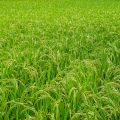
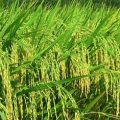

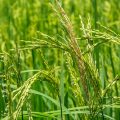
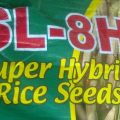
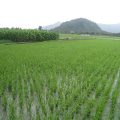

Us 382